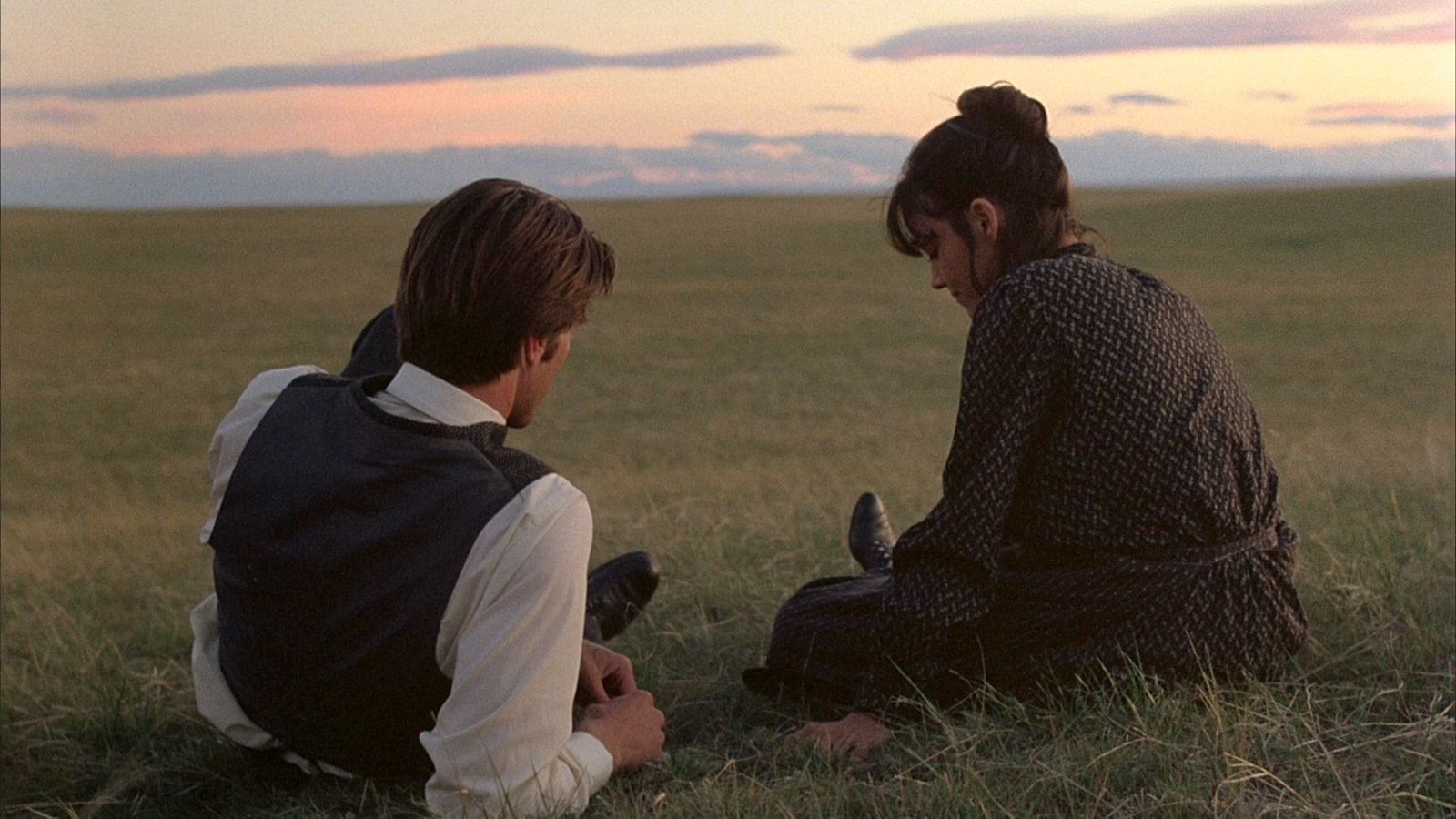Out of Focus: Brilliance of ‘Days of Heaven’ lies in filmmaker’s reliance on visuals

Terrence Malick’s film “Days of Heaven” tells the story of a poor laborer who flees to the Texas Panhandle after an accidental murder. The 1978 picture will be screened at UCLA’s James Bridges Theater on Monday.
(Paramount Pictures)
By Ian Colvin
June 2, 2014 12:34 a.m.
The golden hour in filmmaking is a brief and fleeting time of day directly before sunrise and after sunset when the sky is painted in lush yellows and warm reds. It evokes an overwhelming sense of nostalgia, loss and melancholy – a reason it has become the ideal time for filmmakers and photographers to shoot.
Terrence Malick’s 1978 film “Days of Heaven” was shot almost entirely during this so-called magic hour. Sumptuously rich in colors and pastoral iconography, it is one of the most gorgeously photographed productions ever made.
On Monday at 7:30 p.m. in UCLA’s James Bridges Theater, “Days of Heaven” will be screened in a luscious 35mm print through the ongoing series Melnitz Movies.
Richard Gere stars as Bill, a poor laborer who flees to the Texas Panhandle after accidentally killing his boss at a Chicago steel factory. He, his girlfriend Abby (Brooke Adams) and his younger sister Linda (Linda Manz) soon find work at an isolated farm, owned by an unnamed farmer (the brilliant playwright Sam Shepard).
After finding out the lonely farmer is dying, Bill convinces Abby to marry the man in order to gain his inheritance. However, as one would expect, things don’t go exactly as planned.
So much of the film’s brilliance lies in the way Malick tells his story primarily through visuals. The dialogue is stripped to its bare bones, used only when it is narratively important. Malick instead focuses on the imagery of the environment in which the characters operate to draw his meanings and characterizations: a lonely house situated in the middle of rolling farmlands; a train roaring down the tracks through the countryside crammed full of men looking for work; fire, smoke and locusts enveloping a wheat field in a scene that draws biblical parallels.
“Days of Heaven” is clearly made by a filmmaker with the eye of a painter, who is able to intoxicate filmgoers in moments of serene quietude. Many have criticized Malick for his filmic coldness and his emphasis solely on the beauty of the image; however, I would argue that, in this case, the effect is mesmerizing and even more engaging. He uses cinema in the way that makes the medium different from literature: by showing, not telling.
Malick’s now-famous meticulousness is present even in the ’70s, as “Days of Heaven” is only his second feature. One can clearly see that he is focused on every detail throughout the process. This obsessiveness culminated in post-production – it took him more than two years to actually finish editing the picture as a result of the quandary of figuring out the film’s proper pacing.
Inserting the childlike narration of Linda throughout the movie ended up being the solution to Malick’s problem, and the effect is exceptional – the story’s focus is redirected. It becomes not only a story of adults and their problems, but also one that is projected through the lens of a child.
So much has been written about the filmic poeticism of Malick that it becomes nearly impossible to approach his work without commenting on it. His command of images as well as the introspective nature of his films, which comes through in fragmentary, yet ethereal narrations and dialogue, places him in a category all his own among the ranks of filmmakers. He is cinema’s great poet, and “Days of Heaven” is one of his greatest works.
What classic films would you like to see receive their time in the limelight?


